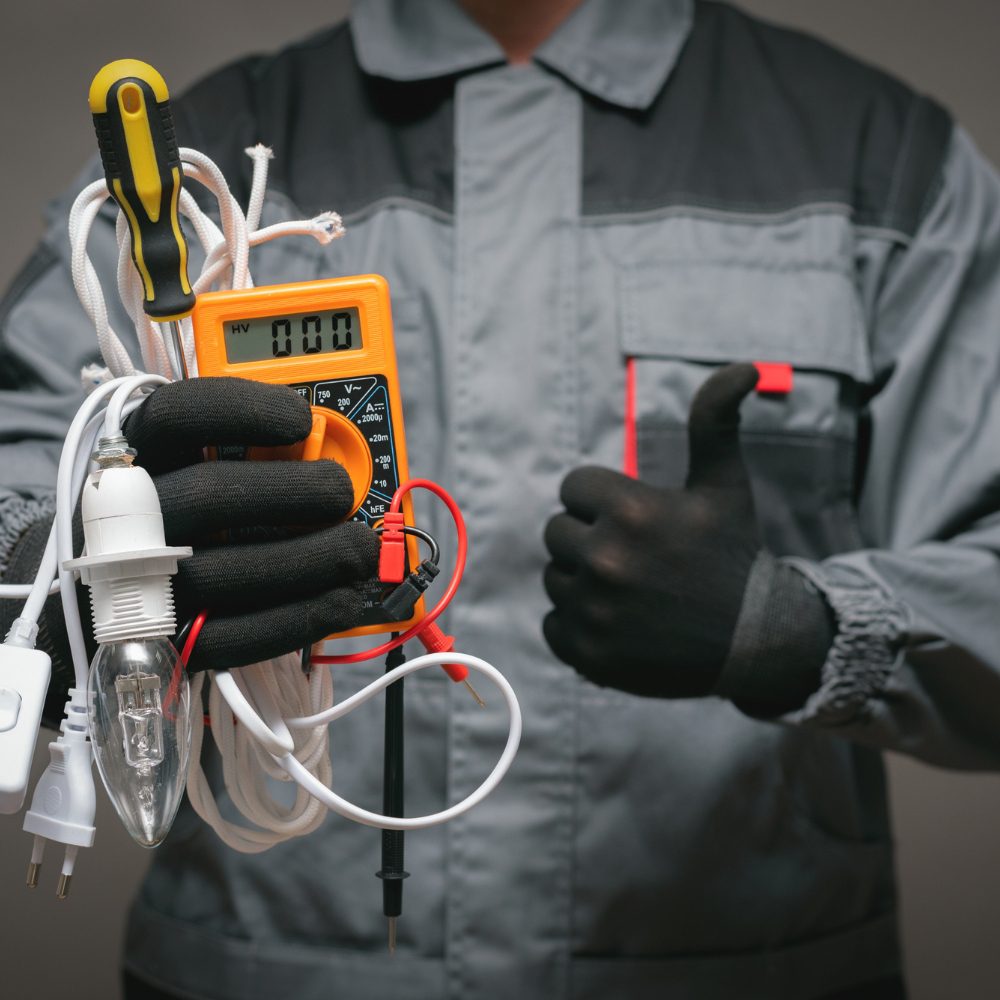If you’re a keen DIY fan wondering what electrical work can I do myself in Australia, know this: Australia’s strict electrical safety for DIYers rules mean you must often get a pro. You can do simple home electrical repairs DIY, like changing light bulbs or making spaces for air cons. But, for more complex electrical projects for beginners, you need a professional’s help. In Australia, it’s easy to know what’s a small job and what’s not in DIY electrical work Australia. This clarity is key for electrical safety.
Key Takeaways
- DIY electrical work in Australia is greatly restricted to safeguard against injury and property damage.
- Replacing light bulbs and performing cosmetic tasks are typically the extent of permitted DIY electrical activities.
- Most electrical tasks, barring the most basic, require a licensed electrician under Australian law.
- Understanding the limitations of DIY electrical work is essential for both safety and legal compliance.
- Before attempting any electrical work, consult with a professional to avoid costly penalties or dangerous mistakes.
- Always prioritise electrical safety to prevent potentially life-threatening accidents.
The Risks and Legalities of DIY Electrical Work in Australia
In the home improvement world, electrical work is highly regulated. In Australia, being careful with electrical safety for DIYers isn’t just wise, it’s the law. Shocking stats from New South Wales show 40% of house fires start from electrical faults. This highlights the need for homeowners to know the risks and rules of DIY electrical work in Australia.
Understanding the Electrical Safety Act (2002)
The Electrical Safety Act (2002) is at the heart of electrical regulations DIY Australia. This law acts as a guardrail between being safe and facing dangers. It clearly states that only qualified electricians can do installation work. Ignoring this could lead to dire outcomes, even making insurance void. Only experts should install safety switches, crucial in homes today. If your home was built before 2000, get a certified electrician to check your safety systems.
The Dangers of Unlicensed Electrical Work
Unlicensed electrical work carries serious risks. This includes the danger of arcing, fire, or explosions from messing with electrical parts. Studies show even short contacts with electricity can have major impacts. DIY electrical projects risk not just the person’s safety but others too. This is through potential hidden faults that might cause problems later.
The Costs of DIY Mistakes: Fines and Prosecution
Ignoring Australian DIY electrical guidelines can hit your wallet hard as well as put health at risk. Fines for illegal work can reach $40,000. Cases causing injury can lead to big fines or even court. Landlords must make sure rental properties are safe with working safety switches. After electrical work, showing a Certificate of Compliance Electrical Work (CCEW) is essential. So, wondering What electrical work can I do myself in Australia involves knowing and following strict rules.
Homeowners should understand that DIY electrical work Australia is bound by strict laws. Jumping into it without the right license brings danger and legal trouble. Australian laws make it clear that electrical work should always be done by professionals.
What Electrical Work Can I Do Myself in Australia
Thinking about doing some easy electrical work for beginners? It’s important to know what DIY tasks are safe. In NSW, electrical faults cause up to 40% of house fires each year. Safety is key. Your DIY electrical work is limited to certain tasks, under strict rules, to keep you and your home safe.
- Replacing LED downlights
- Rewiring old-style fuses
- Changing light bulbs
- Performing cut-outs for air conditioning units
- Installing battery-operated smoke alarms
These electrical tasks for DIY homeowners don’t need a licensed electrician. But, Australian laws say you can’t touch electrical wiring. It’s really important for safety. Make sure to get professionals for more complex jobs. Also, test safety switches every six months. They protect you from electric shocks.
Remember, a quick-acting safety switch saves lives by cutting electricity in seconds. If your home’s wiring is old (before 2000), get a licensed electrician to check your safety switches.
While you can do some what electrical work can I do myself in Australia, remember some tasks are off-limits. Tasks like checking wiring or replacing safety switches need an expert. If you’re renting, the law says safety switches in rental homes must be checked and working well.
If you’re into DIY, be careful with wiring work. It’s not just risky; it’s illegal and might void your home insurance. You must follow Australian electrical standards. A Certificate of Compliance Electrical Work (CCEW) is a must-have. Only qualified electricians can certify your work is safe and up to code.
House fires are often avoidable with proper safety steps. This highlights the danger of incorrect electrical work. So, while easy electrical work for beginners is appealing, always prioritize safety and follow the law when tackling electrical tasks for DIY homeowners.
Electrical Tasks That Require a Licensed Professional in Australia
In Victoria, about 45,000 active licensed electricians and RECs work. Homeowners are pushed to use this expert help for their electrical needs. If you’re thinking about doing electrical repairs yourself or starting a DIY project, know when to call in the pros. Knowing what electrical work you can and can’t do is key, especially for safety.
Lighting and Switch Work Off-Limits for DIYers
Installing new lights or changing switches and power points is complex. These jobs legally must be done by commercial electricians. You can find local electrical contractors in Moreton Bay using the Public Register of RECs. They make sure the work meets strict safety standards with necessary certificates.
The Perils of DIY Appliance Repairs and Installations
DIY electrical jobs across Australia pose real risks with appliance repairs and installs. Fixing plugs or leads might look easy but can be unsafe if done wrong. These jobs don’t need a prescribed certificate, but they are still checked by Energy Safe Victoria (ESV). This shows the real complexity of these tasks, making hiring electrical contractors from Moreton Bay who give you a Certificate of Electrical Safety (COES) after the job a must.
- All major electrical wiring necessitates a licensed professional and a prescribed certificate.
- Non-prescribed electrical work still dictates adherence to regulations and may be audited for compliance.
- The Public Register facilitates homeowners in finding licensed electrical contractors in Moreton Bay and Victoria at large.
While DIY electrical repairs might be tempting, Australian law sets clear limits to keep you safe. Always lean on the skills of certified commercial electricians for electrical tasks. Your safety is their priority.
DIY Projects for Beginners: Home Electrical Tasks You Can Safely Tackle
For those keen on exploring electrical projects for beginners, Australian law supports some low-risk activities. These starting electrical tasks for DIY homeowners are easy to do and follow safety rules. Here’s a look at easy electrical work for beginners. These tasks give a sense of achievement and follow strict electrical standards.
- Changing light bulbs – A simple task that illustrates the basics of electrical safety.
- Rewiring antique fuses – An engaging project for those with a penchant for historical electrical systems.
- Replacing washing machine drive belts – A practical repair that extends the life of household appliances.
DIY fans can also try low-voltage garden lighting for outdoor spaces. Smoke alarm installation is good for beginners too. It makes homes safer without needing complicated wiring.
Note: Direct wiring work is off-limits for safety and legality; always consult or hire a licensed electrician for such tasks to stay within the bounds of Australian DIY electrical legislation and safety guidelines.
Navigating Electrical DIY: How To Stay Within The Law
If you love DIY and home improvements, it’s crucial to know Australian DIY electrical guidelines. 40% of house fires in NSW each year are caused by electrical faults and appliances. This leads to around 1800 house fires that could be prevented. It’s vital to follow electrical regulations DIY Australia sets, especially for safety devices at home.
Homes built before 2000 might lack crucial safety switches. So, an important electrical safety for DIYers step is to have a licensed electrician check your wiring. These pros can inspect, diagnose, and fix your electrical systems. This reduces risks from old wiring.
Remember, safety switches protect against electric shock and fire by cutting off electricity when a current leak is detected. They are different from circuit breakers, which prevent wiring overload and short circuits. You should check these every six months to ensure they’re working. This simple act can save lives.
For property renters, checking safety switch functionality at the start of each tenancy is key. It’s a joint effort among agents, landlords, and tenants. In Strata Schemes, where safety switches may be in various places, working with property managers for regular checks is vital for everyone’s safety.
Since November 2020, the NSW Government has been promoting the importance of safety switches. They emphasize biannual checks to make electrical safety for DIYers a community standard. DIYers must understand their limits; doing unauthorized electrical tasks is illegal and dangerous. Risks include injury, property damage, potential house fires, and losing insurance cover.
- For any electrical installations, licensed electricians must give a Certificate of Compliance Electrical Work (CCEW) for safety and compliance.
- Older homes are riskier due to old wiring, which can become fire hazards.
- Knowing what electrical work can I do myself in Australia requires careful thought and a legal approach to ensure personal and property safety.
For DIYers interested in electrical work at home, know your limits. Seek professional help for tasks you’re not allowed to do. Electrical safety starts with understanding Australian DIY electrical guidelines and committing to follow them.
Contact Information for Your Electrical Needs
For folks in New South Wales (NSW), following electrical safety rules is key to keeping safe at home. Not all electrical tasks are for DIY. They require a licensed electrician. Electricians must provide a Certificate of Compliance Electrical Work (CCEW). This shows the work is up to Australian standards. Choosing skilled commercial electricians and electrical contractors in Moreton Bay avoids serious fines or even jail for breaking rules.
It’s important to know the dangers of electrical work, like shock risks. Safety switches, known as Residual Current Devices (RCDs), are lifesavers. They should be checked every three months. For help with safety switches, contact On Electrical Contractors. Call 13 32 20 to reach NSW Fair Trading for unsafe electrical goods advice. You can also ask online about what electrical DIY work in Australia you can do.
If you’re unsure about the safety or rules of your electrical project, talk to a licensed electrician. They know how to meet Australian Consumer Law requirements and can safely do the job. For professional advice on new installs or safety switch checks, reach out to On Electrical Contractors. They can make sure your DIY electrical work in Australia is safe and legal. It’s not about what you think you can handle; it’s about keeping it safe and following the law.
FAQ
Q: What electrical work can I do myself in Australia?
A: In Australia, DIY electrical tasks are quite limited. You can change light bulbs, swap out LED downlights, and put in battery-operated smoke detectors. But, anything that involves messing with your home’s electrical wires needs a licensed expert.
Q: Can I legally install or replace light switches and power points?
A: Installing or swapping light switches and power outlets yourself is not allowed. These actions must be done by a licensed sparkie, following the Electrical Safety Act (2002).
Q: What are the risks of doing electrical work myself?
A: Doing electrical jobs on your own is risky. You could get an electric shock or start a fire. If you’re not licensed, you could also face big fines, lose your insurance, or even get taken to court if someone gets hurt or if property is damaged.
Q: Are there any electrical tasks suitable for beginners?
A: If you’re just starting out, there are some electrical tasks you can tackle. You can change light bulbs, replace old fuses, and reset circuit breakers. You might also handle low-voltage lights in the garden if you’re careful. But remember, even these basic tasks require caution and an understanding of electrical safety.
Q: How do I know if I need to hire a commercial electrician or electrical contractor?
A: When your electrical needs go beyond simple DIY jobs, it’s time to call in the professionals. This includes installing new lighting, rewiring parts of your house, or fixing electrical machines. A commercial electrician or electrical contractor will be needed for these types of jobs.
Q: Where can I find reliable electrical contractors in Moreton Bay?
A: For reliable electrical help in Moreton Bay & North Brisbane, reach out to certified pros like On Electrical Contractors. They offer expert services that meet Australian standards. Call them at 0416 879 324 or email bjorn@onelectricalcontractors.com
Source Links
- NSW Government – Electrical Safety at Home
- NSW Fair Trading – Electrical Product and Service Safety
- WorkSafe QLD – ES Licensing Eligibility Policy (PDF)
- WorkSafe QLD – Energised Electrical Parts
- SafeWork SA – Safe Electrical Practices
- ESV Victoria – Electrical Workers

Electrical Contractors in SE Queensland
Electrical contractors in Queensland offer a comprehensive range of services across residential, commercial, and industrial properties. From Electrical Safety and Compliance to Electrical Wiring for New Homes, they cater to various needs, ensuring that all properties are safely and efficiently powered.
Residential Electrical Services
- Electrical Installations
- Lighting, power points, ceiling fans, exhaust fans, and appliances.
- Home Automation
- Smart home systems, lighting control, security systems, and Home Theatre Installation & Setup.
- Switchboard Upgrades
- Replacing old fuse boxes with modern switchboards featuring safety switches.
- Rewiring
- Full or partial rewiring of homes, especially older properties.
- Electrical Inspections
- Safety checks, compliance inspections, and pre-purchase inspections.
- Surge Protection
- Installation of surge protectors to safeguard electronic devices.
- Smoke Alarm Installation, Testing & Inspections
- Compliance with Queensland legislation requiring interconnected photoelectric smoke alarms.
- Outdoor Lighting
- Garden lighting, pool lighting, and security lighting.
- Energy Efficiency Solutions
- LED lighting upgrades, solar panel installations, and energy audits.
- Fault Finding and Repairs
- Diagnosing and repairing electrical issues.
- Renovations and Extensions
- Electrical work for home renovations and extensions.
Commercial Electrical Services
- Commercial Lighting
- Installation of interior and exterior lighting, including LED lighting and emergency lighting.
- Data and Communications
- Cabling for internet, phone systems, and data networks.
- Electrical Fit-outs
- Electrical work for new offices, retail spaces, and other commercial properties.
- Power Distribution
- Installation and maintenance of electrical panels, transformers, and power distribution systems.
- Security Systems Wiring Installation
- CCTV, access control, and alarm systems.
- Electrical Maintenance
- Regular maintenance and testing of electrical systems.
- Energy Management Systems
- Installation and monitoring of systems to reduce energy consumption.
- Testing and Tagging
- Compliance testing and tagging of electrical equipment.
- UPS Systems
- Installation and maintenance of uninterruptible power supply systems.
- HVAC Systems
- Electrical wiring for heating, ventilation, and air conditioning systems.
Industrial Electrical Services
- Industrial Automation
- PLC programming, automation systems, and control panel installations.
- High Voltage Installations
- Installation and maintenance of high voltage systems and equipment.
- Machine Installations
- Electrical wiring and setup of industrial machinery.
- Electrical Maintenance
- Preventive and reactive maintenance for industrial electrical systems.
- Power Factor Correction
- Installation of equipment to improve power factor and reduce energy costs.
- Electrical Upgrades
- Upgrading electrical systems and infrastructure in industrial facilities.
- Instrumentation and Control
- Installation and maintenance of instrumentation and control systems.
- Emergency Power Systems
- Installation and maintenance of backup generators and other solutions.
- Hazardous Area Electrical Work
- Electrical work in hazardous environments, including explosive atmospheres.
- Electrical Design and Engineering
- Custom electrical system design and engineering services.
Additional Services Across Sectors
- Electrical Cost for New Home Construction
- Electrical Contractors For Building Sites
- Electrical Wiring Services
- Electrical Repair & Fault Finding Services
- Electrical Contractors For Real Estate & Property Managers
- Electrical Preventative Maintenance For Commercial & Industrial Machinery
- Three-Phase Power Upgrades & Installation
- Hot Water System Installation & Repairs Services
- Emergency & Exit Light Testing Electrical Services
- Kitchen & Bathroom Renovations Electrical Services
- Exhaust Fans & Bathroom Heating Installation Services
- Air Conditioning Services
- Electrical Appliance Installation
- Electrical Renovations & Extensions
- Electrical Safety Test Inspection
- Test and Tag Services
- Lighting Installation
- Power Point Installation, Upgrades & Replacement
- Switchboard Upgrade & Replacement
- Commercial Electrician
- Industrial Electrician
- Residential Electrician
- Home Automation Installations & Repairs
These services ensure that all properties, from homes to large industrial complexes, receive the highest level of electrical safety, efficiency, and innovation.

